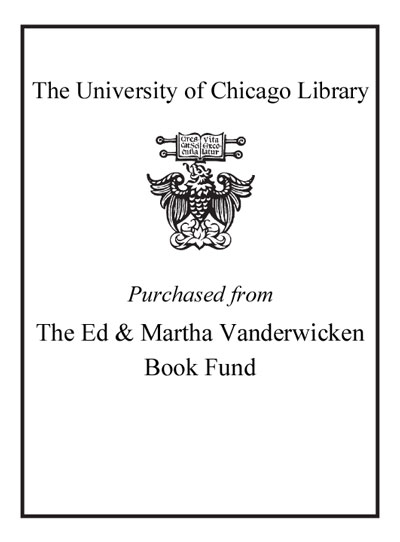Treatment of the postmenopausal woman : basic and clinical aspects /
Saved in:
| Edition: | 3rd ed. |
|---|---|
| Imprint: | Burlington, MA : Academic Press, 2007. |
| Description: | xiv, 894 p. : ill. (some col.) ; 29 cm. |
| Language: | English |
| Subject: | |
| Format: | Print Book |
| URL for this record: | http://pi.lib.uchicago.edu/1001/cat/bib/6635826 |
Table of Contents:
- Contributors
- Preface
- 1. The Menopause: A Signal for the Future
- Section I. Basics to Enhance Our Understanding
- 2. Molecular Pharmacology of Estrogen and Progesterone Receptors
- 3. Genetic Programming in Ovarian Development and Oogenesis
- 4. Basic Biology: Ovarian Anatomy and Physiology
- 5. Endocrine Changes During the Perimenopause
- 6. Epidemiology of Menopause: Demographics, Environmental Influences, and Ethnic and International Differences in the Menopausal Experience
- Section II. Ovarian Senescence and Options
- 7. Premature Ovarian Failure
- 8. Reproductive Options for Perimenopausal and Menopausal Women
- Section III. The Perimenopause
- 9. Neuroendocrine Regulation of the Perimenopause Transition
- 10. Changes in the Menstrual Pattern During the Menopause Transition
- 11. Decisions Regarding Treatment During the Menopause Transition
- 12. Use of Contraceptives for Older Women
- Section IV. Changes Occurring After Menopause
- 13. Menopausal Hot Flashes
- 14. Clinical Effects of Sex Steroids on the Brain
- 15. Impact of the Changing Hormonal Milieu on Psychological Functioning
- 16. Connective Tissue Changes in the Menopause and with Hormone Replacement Therapy
- 17. Menopause and the Skin
- 18. Urogenital Symptoms around the Menopause and Beyond
- 19. Vulvovaginal Complaints
- 20. Sexuality: Clinical Implications from Epidemiologic Studies
- Section V. Brain Function
- 21. Menopause and Cognition
- 22. Cognitive Health in the Postmenopausal Woman
- 23. The Role of Sex Steroids in Alzheimer's Disease: Prevention and Treatment
- 24. Estrogens and Depression in Women
- Section VI. Bone Changes
- 25. Pathogenesis of Osteoporosis
- 26. Assessment of Bone Density and Bone Strength
- 27. Biochemical Markers of Bone Turnover
- 28. Interventions for Osteoporosis
- 29. Treatment of Osteoporosis
- 30. Potentials of Estrogens in the Prevention of Osteoarthritis: What Do We Know and What Questions are Still Pending?
- Section VII. Cardiovascular
- 31. Epidemiology and Risk Factors of Cardiovascular Disease in Postmenopausal Women
- 32. Mechanisms of Action of Estrogen on the Cardiovascular System
- 33. Lipids and Lipoproteins and Effects of Hormone Therapy
- 34. The Effects of Hormone Therapy on Inflammatory, Hemostatic, and Fibrinolytic Markers in Postmenopausal Women
- 35. Hormone Therapy and Hemostasis
- 36. Risk of Pulmonary Embolism/Venous Thrombosis
- 37. Glucose Metabolism After Menopause
- 38. Stage of Reproductive Life, Atherosclerosis Progression and Estrogen Effects on Coronary Artery Atherosclerosis
- 39. Randomized Controlled Trials and the Effects of Postmenopausal Hormone Therapy on Cardiovascular Disease: Facts, Hypotheses, and Clinical Perspective
- Section VIII. Neoplasia
- 40. Body Weight, Menopausal Hormone Therapy, and Risk of Breast Cancer
- 41. Postmenopausal Breast Surveillance
- 42. Endometrial Cancer and Hormonal Replacement Therapy
- 43. Ovarian Cancer and Its Detection
- 44. Hormone Replacement Therapy in Menopause and Breast, Colorectal, and Lung Cancer: An Update
- Section IX. Clinical Trials and Observational Data
- 45. The Women's Health Initiative-Data and Discussion
- 46. Postmenopausal Hormone Therapy in the 21st Century: Reconciling Findings from Observational Studies and Randomized Clinical Trials
- 47. Morbidity and Mortality Changes with Hormone Therapy
- Section X. Life Cycle and QOL
- 48. Issues Relating to Quality of Life in Postmenopausal Women and Their Measurement
- 49. Role of Exercise and Nutrition
- 50. Herbs, Phytoestrogens, and Other CAM Therapies
- Section XI. Urinary Symptoms and Pelvic Support
- 51. Lower Urinary Tract Disorders in Postmenopausal Women
- 52. Pelvic Organ Prolapse in Postmenopausal Women
- Section XII. Hormonal Therapy
- 53. Pharmacology of Estrogens
- 54. Structure-Function Relationships, Pharmacokinetics, and Potency of Orally and Parenterally Administered Progestogens
- 55. Intervention: Androgens
- 56. Future Strategies in Climacteric Medicine
- Section XIII. Some Alternative Medical Therapies
- 57. Alternative Therapy: Dehydroepiandrosterone for Menopausal Hormone Replacement
- 58. Melatonin
- 59. Selective Estrogen Receptor Modulators
- 60. Tibolone: Selective Tissue Estrogen Activity Regulator Utilization in Postmenopausal Women
- Section XIV. Women's Centers, Information Needed for Clinical Trials, and the Future
- 61. Integrated Adult Women's Medicine: A Model for Women's Health Care Centers
- 62. Clinical Trials in Postmenopausal Hormone Therapy
- 63. The Future of Therapy and the Role of Hormone Therapy
- Subject Index


